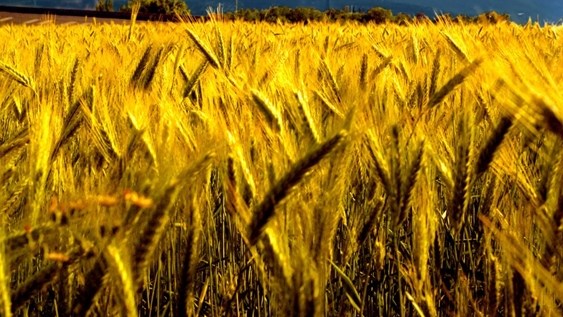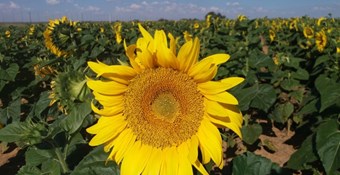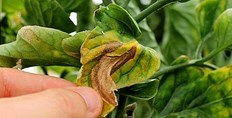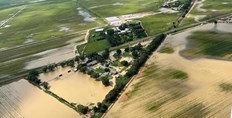Agri Hour
#Agbiz: A good season for SA's winter crops─── 05:00 Tue, 20 Jul 2021

As usual on the Agri Hour, Wandile Sihlobo, chief economist at the Agricultural Business Chamber of South Africa, Agbiz, provides a weekly insert about the latest on the global as well as South African agricultural markets.
He also provides more information about the latest developments in the agricultural sector.
See PODCAST below
In this week’s insert, Siblobo talks about South Africa experiencing a positive production season.
“Our recent analysis of South Africa's agricultural production for the 2019/20 and 2020/21 production seasons has largely carried a positive tone. Over the past month, our focus has been on summer crops and horticulture, where record yields have been a dominant feature in the discussion. For summer crops, we maintain our upbeat view that the 2020/21 season will show further improvement in output compared with the 2019/20 season.
“Encouragingly, this optimistic production outlook extends into winter crops, i.e., wheat, canola, oats and barley, which we have not discussed much recently. The Western Cape, where more than two-thirds of the winter crops are planted, has received favourable rains since the start of May. Moreover, the cold weather in recent weeks has also provided conducive conditions for the crops. This is in a season where farmers intended to increase wheat, canola and oats plantings by 1% (to 512 500 hectares), 28% (to 95 000 hectares) and 32% (to 34 500 hectares) year-on-year (y/y), respectively,” says Sihlobo.
He further explains that for wheat, planting intentions are roughly in line with the 10-year average, while for canola, current planting intentions are the largest in eight years and well above the long-term average.
“For oats, this would be the largest area planted on record. Barley is the only winter crop that saw its expected area planting fall sharply by 33% y/y to 95 000 hectares. This is partly because of lower demand following temporary bans in alcohol sales at various intervals since the start of the pandemic. The 2021/22 crop looks set to be in the lowest area since the 2017/18 production season.
“The weather outlook for the next two months will likely keep the crop in good condition until the end of the season. At the end of June 2021, the South African Weather Service indicated that "the multi-model rainfall forecast indicates mostly above-normal rainfall during the late-winter season (Jul-Aug-Sep), notably, however, there are below-normal rainfall expectations over the southern coastal areas for late winter.
“We take that to mean that the southern coastal areas that could remain relatively dry are primarily around the Eastern Cape, where the 2020/21 summer rainfall did not affect most of the southern areas of the province, and there remain concerns of dryness. But for the Western Cape, there will likely be normal rains in the coming months, which bode well for the winter crops growing season. Also, it is worth noting that the benefit of the recent rains in the Western Cape is reflected on dam levels. In the week of 12 July 2021, the Western Cape's provincial dams averaged 72% full, compared with 51% in the corresponding period last year,” adds Sihlobo.
Furthermore, an important date to keep an eye on in the coming week is 28 July, when the Crop Estimates Committee (CEC) will release the preliminary area plantings of South Africa's winter crops.
“We do not believe there will be a significant deviation from the area mentioned above that farmers intended to plant. Our interactions with farmers, specifically in the Western Cape, suggest that there has been an increase in area plantings of wheat and canola and a decline in barley for reasons we have stated above.
“It will be a month until we understand how much the latest rains and expected area increase will contribute to overall yields and output. The CEC will release the first winter crop production forecast only on 26 August. Still, the available information suggests that we could see a slightly larger harvest than in the 2020/21 production season. For wheat, the 2020/21 crop was the largest in nearly two decades at 2,1 million tonnes, while canola was the largest harvest on record at 165 200 tonnes, and oats at a record 57 000 tonnes.
“Nevertheless, South Africa will remain a net importer of wheat even if the 2021/22 harvest is larger than the previous season, as we expect. The import requirements for the marketing year, which starts on 1 October 2021, will become clearer once we have a reliable estimate of the current crop. Generally, under the scenario of an improved production in the 2021/22 season, imports could decline from the expected volume of 1,6 million tonnes in the 2020/21 marketing year.
“While a decline in import volumes will be positive for the South African agricultural trade balance, the expected large crop will have minimal impact on price trends. South Africa's wheat prices will continue to be heavily influenced by the global market developments as the country is a net importer of the commodity. On 15 July 2021, South Africa's wheat spot price was down 7% y/y, trading around R5 260 per tonne. These developments in the wheat market also influence the barley market prices.
“In sum, the positive news of good agricultural production in South Africa is not limited to particular crops, but extends to all subsectors, especially where area plantings have also been lifted. The driving force of optimism is the favourable weather conditions,” concludes Sihlobo.
OFM News














